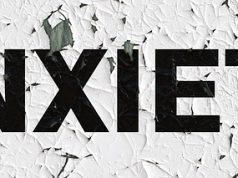Stats: 1 in five teenagers from all walks of life will suffer from depression at some point during their teen years.
Teenage depression is highly treatable with help.
Occasional bad moods or acting out is expected and normal during the teenage years.
What to look for in teens
- Low energy and concentration/focus difficulties at school. This can lead to poor academic performance, high absenteeism, lateness and frustration in school.
- Running away – either talking about it or running away are signs of depression. This is a cry for help.
- Drug and Alcohol abuse – it’s a way to self-medicate their depression. Unfortunately, it only makes matter worse.
- Low self-esteem – depression can intensify teens feeling of ugliness, shame, failure and unworthiness.
- Smartphone addiction – teens use their technology as a form of escaping their problems. Social media can lead to isolation, FOMO, comparing themselves to others and depression.
- Reckless behavior – teens may engage in dangerous or high-risk behaviors such as reckless driving, unsafe sex and binge drinking.
- Violence -usually in boys can become aggressive and violent.
Other signs can be self-injury, eating disorders and other mental health problems.
Symptoms:
- Sadness or hopelessness
- Irritability or anger
- Frequent crying
- Withdrawal from family and friends, activities they enjoy.
- Poor school performance
- Change in eating and/or sleeping habits.
- Feelings of worthlessness
- Unexplained aches and pains
- Difficulty concentrating, focusing and lack of energy
- Thoughts of suicide or death
The difference between adult and teen depression
- Teens are more prone to irritability, hostile behavior, anger and easily frustrated rather than sadness.
- Depressed teens complain about physical ailments such as headaches and stomachs especially before school or the night before. When taken to the doctor there is no physical reason for their aches and pain.
- Extreme sensitivity to criticism – this can be seen a lot in over-achievers/perfectionist teens. They are vulnerable to criticism and failure.
- While adults tend to isolate themselves, teen may keep a few friends, or they may switch friend groups.
If you’re not sure if its typical teen behavior or depression consider how long the symptoms have been going on, how severe they are and how different your child is acting from their normal self. Hormones and stress can explain the occasional bout of teenage issues but not continuous and unrelenting happiness.
Signs to watch for suicide
- Talking/joking about suicide
- Saying things like: I wish I was dead or I would be better off dead, I wish I could disappear forever or There is no way out.
- Speaking positively about death or romanticizing about it. Example: If I died, people would love me more
- Writing stories/poems about death and/or suicide.
- Giving away prized possessions.
- Saying goodbye to family and friends as if it was the last time they would see you
- Seeking out weapons, pills, knives or other ways to kill themselves. Also, looking on the internet on ways to kill themselves.
Ways to talk to a depressed teen
- Focus on being an empathetic listener- resist the urge to criticize or judge. Let your teen know you are there for them. Be supportive and unconditional.
- Be gentle and persistent – don’t give up if they shut you out at first. It’s a tough topic to talk about but very important not to give up.
- Acknowledge their feelings – don’t tell them their feelings aren’t valid. Don’t say “Things aren’t so bad”.
- Trust your instincts – if your child says nothing is wrong but you feel differently go with your gut. Talk to a third party if necessary like school counselor, coach or teacher.
- Get outside help – LPC, LCSW, Clinical Psychologist, Psychiatrist.
As a Therapist, Educator and Positive Living Expert, Diane has dedicated her career to helping people turn their lives around and is now on a mission to help them develop a sustainable positive attitude that can actually turn one into an optimist, literally.
Through her two books, “Creating Balance & Finding Happiness” and “Baby Steps: the Path from Motherhood to Career.” Diane has been speaking and empowering parents and adults nationwide. She is also an Adjunct in Psychology at Montclair State University, where her college work includes mentoring students for personal issue advisement.
As an expert in her fields of therapy, Lang has been featured in the Daily Record, Family Circle, Family Magazine, Working Mother Magazine and Cookie Magazine, seen on NJ 12 TV, Good day CT, Style CT, The Veira Network, CBS TV and “Fox & Friends”. She has also participated in a reality based Internet show, ourprisoner.com, hosted Generation X-tinet. In addition Lang writes a blog for Pazoo.com
For more information please visit http://www.dlcounseling.com or email Diane at DLCounseling2014@gmail.com







